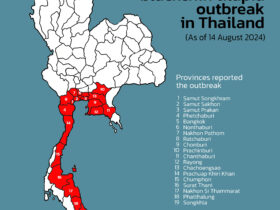Intervention made by: INTERNATIONAL COLLECTIVE IN SUPPORT OF FISHWORKERS (ICSF)
Made at: The 12th Meeting of the United Nations Open-ended Informal Consultative Process on Oceans and the Law of the Sea (UNICPOLOS). 22 June 2011
Artisanal and small-scale fisheries make significant contribution to sustainable development, particularly in labour- surplus economies by sustaining coastal communities and indigenous peoples whose livelihoods, quality of life and culture depend on aquatic ecosystems.
The Agenda 21, the UN Fish Stocks Agreement and the 1995 FAO Code of Conduct for Responsible Fisheries, as pointed out by Matthew Gianni on behalf of NRDC, have recognized the importance of protecting the rights of subsistence, small-scale and artisanal fishers and fishworkers to a secure and just livelihood. The JPOI, however, failed to maintain this important recognition. Rio+20 should therefore reiterate the importance of small-scale, artisanal fisheries to coastal communities and in promoting sustainable use of fishery resources.
In June 2005 in a UNICPOLOS panel discussion, the International Collective in Support of Fishworkers (ICSF) had proposed “scale subsidiarity” as an important principle to be considered in marine capture fisheries, whereby larger fishing vessels are considered in a fishery only after exhausting the possibility of employing smaller vessels, with due consideration for the safety of fishing operations and for the safety and working conditions of fishers on board.
Regarding fisheries subsidies, to move towards sustainable development in labour surplus coastal communities, there should be a concerted attempt to train fishers to move into alternative forms of livelihood, as pointed out by Prof. Sumaila. Well directed fisheries subsidies should also be employed not to add to fishing capacity, but to introduce effective fisheries conservation and management measures. Well directed fisheries subsidies should also be considered to introduce food safety and environmental standards at the national level, and to improve safety of fishing operations, as has already been recognized in the on-going negotiations on fisheries subsidies at the Negotiating Group on Rules at the World Trade Organization.
We hope Rio+20 can bring back attention to small-scale artisanal fisheries in a significant way. It should help bridge some of the existing gaps and bring important recent international developments to benefit artisanal small-scale fishers and fishworkers, such as the ILO’s Work in Fishing Convention, 2007. In this context, we urge all States to ratify this important Convention.
It is important to highlight the salient aspects of small-scale artisanal fisheries in Rio+20 considering that small- scale fisheries are less threatening to the marine ecosystems, that small scale artisanal fishing vessels often participate in multi-species fisheries with low quantities of gear and are often passive and selective. Small-scale fisheries still need to be made more visible from a human rights perspective. It is important to make rights-based approaches to fisheries management coherent with a human rights approach. We hope Rio +20 can be of assistance in consolidating all these aspects of interest to small-scale artisanal fishers and fishworkers.
[Brazil strongly supported the statement and wanted our statement to be recognized in the report of the meeting]


Leave a Reply